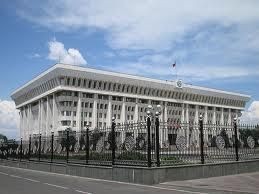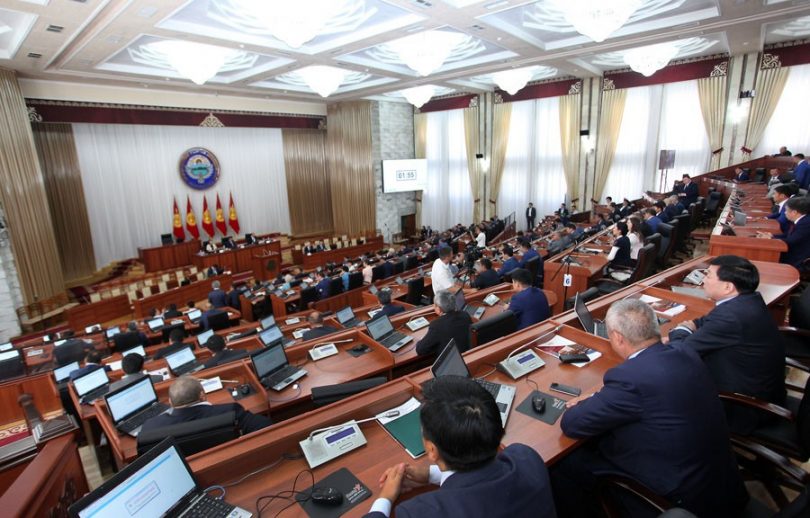BISHKEK (TCA) — As a new ruling coalition has been formed in Kyrgyzstan’s parliament and a new Cabinet has been approved by parliament, we are republishing this article originally published by EurasiaNet.org:
Kyrgyzstan’s parliament endorsed the composition of a tweaked cabinet on November 9 that will be backed by a new, slimmed-down coalition and led by an unchanged prime minister firmly allied to single-term President Almazbek Atambayev.
MPs voted 114 to 4 to endorse Jeenbekov’s reshaped cabinet wherein the most eyebrow-raising appointment was that of Ulan Israilov, Atambayev’s former bodyguard and the ex-head of the government’s main anti-corruption inspectorate, as Interior Minister.
Among other additions, Cholpon Sultanbekova, a member of the pro-Atambayev Kyrgyzstan party and most famous as the widow of a former mob boss from the south of the country, took up the position of deputy prime minister for social affairs.
Jamshitbek Kalilov became the new transport minister with predecessor Zamirbek Aidarov presently under investigation by Israilov’s former unit for corruption in a road tender won by a Chinese company.
The overwhelming parliamentary backing for the new government has become a tradition in Kyrgyzstan’s mixed political system and does not mean that all is well in the legislature.
Two parties previously in the ruling coalition, Onuguu Progress and Ata-Meken are no longer part of the alliance that collapsed last month following their opposition to a controversial, Atambayev-driven referendum set to take place on December 11.
That leaves Atambayev’s Social Democratic Party of Kyrgyzstan (SDPK) governing along with the Kyrgyzstan party that survived the collapse and new entrants Bir Bol.
All three of those parties support Atambayev’s constitutional fix, while Respublika – Ata-Jurt, the second largest party in the legislature is in the unusual position of being in opposition despite being in agreement with the changes.
Although Jeenbekov has given lip service to a number of government priorities, including fighting corruption, it is unlikely his cabinet will undertake serious reforms.
Instead its most pressing task will be to keep the fairly slim coalition majority of 68 MPs intact as the country prepares for a referendum on changes that would significantly strengthen the powers of Jeenbekov and future prime ministers vis-a-vis the parliament.
Among these are amendments prohibiting factions from leaving a coalition unless two-thirds of that faction’s members support an exit, and another requiring a two-thirds majority of all MPs for a motion of no-confidence in the government.
As the party with almost one-third of the seats in parliament, SDPK will by virtue of the amendments doubtless become the arbiter of parliamentary politics for the near future at least and leave the party’s most strident opponents, Onuguu and Ata-Meken, marginalized and frustrated. Whether that will spill over into more serious unrest as the vote approaches remains to be seen.
At a session of parliament on November 9, MPs from these parties did, however, have some fun grilling Israilov, whose scanty qualifications have sparked some skepticism. There is also concern that Israilov’s ministry could eventually be used to target presidential opponents.
After Israilov was unable to name the number of ministers in the government, when asked by Ata-Meken leader Omurbek Tekebayev, Jeenbekov sprang to his defence.
“Israilov is someone I have known for a long time. We have worked together for many years. He cannot speak nicely or issue boasts in front of the people, but he will execute his tasks,” Jeenbekov assured.
“The main problem with law enforcement is finding staff that will work cleanly and openly … In time he will get used to being in the [parliament] and answering questions.”








